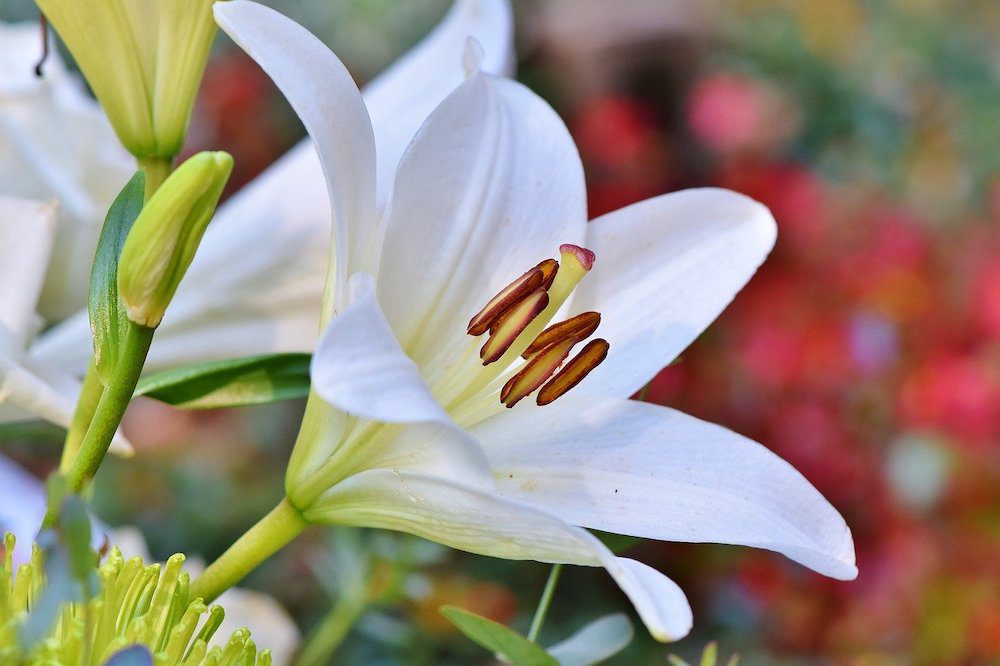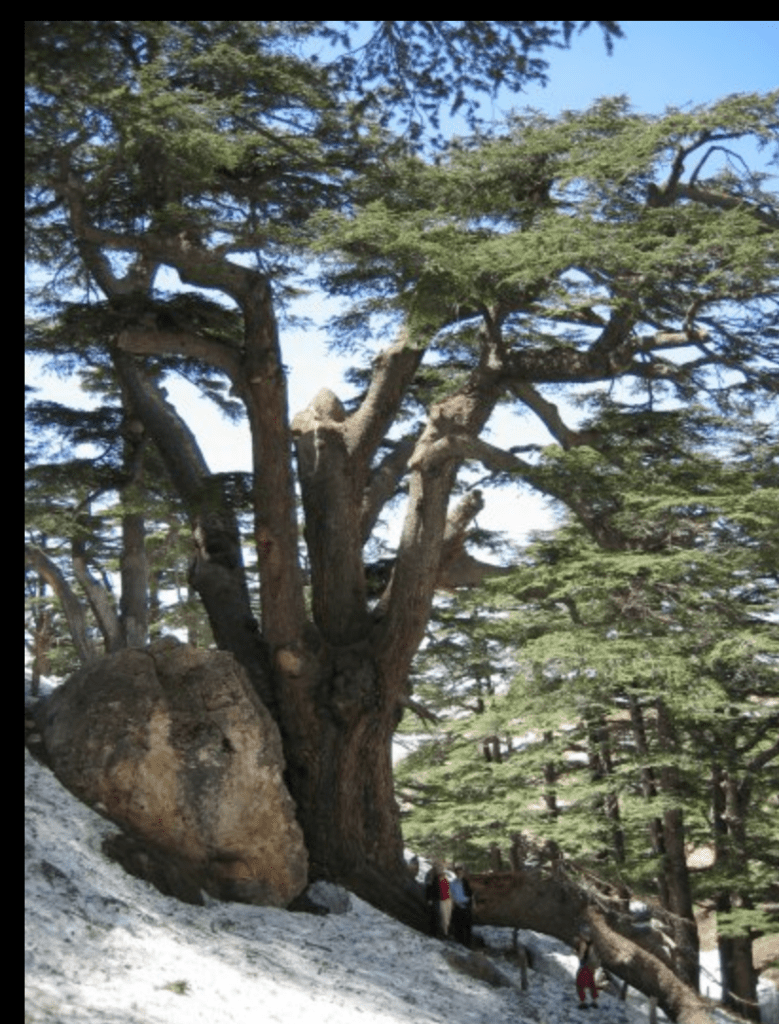May the Cedar of Lebanon Give People Strength to Cope
By Jill Brooke

Have you heard of the Cedar of Lebanon? This evergreen conifer is also mentioned in the Bible as Cedars libani and is the national tree of Lebanon and depicted on its flag.
It grows strong and is popular around the world in zones 6-9. Like this tree, we hope that the people of Lebanon will stay strong as they deal with the grief of an explosion believed to be sparked by stored chemicals that caused the deaths of more than 100 people and injured more than 5000. Furthermore, some 300,000 people are displaced from their homes.
Although the country doesn’t have a national flower, many people in Lebanon love white flowers since the Arabic name for Lebanon is “Lubnan” which means white – inspired by the color of its snow-covered mountains.

Popular flowers in Lebanon – which was once known as the Paris of the Middle East – include begonia, zinnia, vinca, dahlia, jasmine, carnations and gladiolus – the flower for Augusta as well as white lilies that are also the flowers for sympathy and comfort.
“What we are witnessing is a huge catastrophe,” the head of Lebanon’s Red Cross, George Kettani, told the Beirut-based news network Al Mayadeen. “There are victims and casualties everywhere.”
As the New York Times reported, Lebanese customs officials wrote letters to the courts at least six times from 2014 to 2017, seeking guidance on how to dispose of the highly combustible material that was placed there by a Russian ship.
Solutions proposed by the officials included exporting the ammonium nitrate, which is used in fertilizer and explosives or donating it to the Lebanese Army. But the judiciary failed to respond to the letters, the records suggested.
The country is now in turmoil. Food shortages are also facing residents that have already been dealing with the country’s struggling economy.
But signs of hope are always seen through flowers that peek out in rubble. We’ve seen it in Australia when through the volcanic ash, a flower bloomed. We saw it on the makeshift graveyards of Europe when red poppies grew And hopefully the world will collectively – at a time of Covid – convene peacefully to help Lebanon plant seeds of possibility for their future.
Flowers have a way of reminding us that life reblooms and there is always hope.
Photo Credit: Pixabay, Wikipedia
